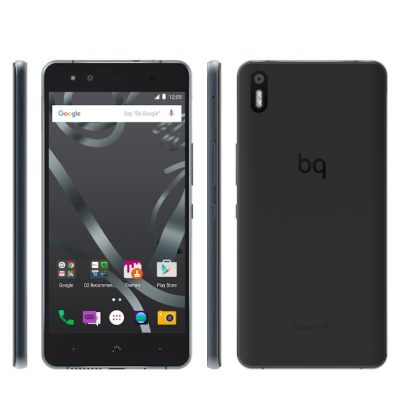The Cyanogen flavor of open Android is getting a little carrier love in Europe, with Spain’s Telefonica launching its first handset powered by the mobile OS today, the BQ Aquaris X5, on its Movistar carrier brand.
The handset is also due to launch on Telefonica owned carriers in Germany and the U.K. this year — in the latter market it will land on O2 next month. During 2016, Movistar says it will be rolled out to other countries where the brand operates.
Price wise, the Aquaris X5 is being offered for €209 by Spain’s Movistar SIM-free. Or for as little as €8.7 per month on a two-year contract.
https://twitter.com/cyngn/status/664531972316749824
Hardware wise, the phone has a five inch display, Snapdragon 1.4Ghz quad-core processor, 2GB of RAM, 16GB internal memory and a 13MP rear camera — so it’s positioned squarely in the mobile mid-range. But it’s the OS that’s a little different: the 4G Aquaris X5 runs Cyanogen OS 12.1, which is based on Android 5.1.1 (Lollipop) but includes additional features such as a Privacy Guard control for data being shared with third parties, and a caller ID that bakes spam call detection into the native dialer via a Cyanogen partnership with Truecaller.
For its part Cyanogen has been on a funding tear in recent times, raising some $115 million in three rounds, from investors including Andreessen Horowitz, Index, Qualcomm and Foxconn, in the hopes of scaling into a “big meaningful mobile platform” in its own right, as CEO Kirt McMaster put it back in 2013.
How to compete in a mobile space dominated by Google’s flavor of Android? ‘If you can’t beat Android, be Android — but add a bit of special sauce’ sums up the thinking here.
And while there are handset makers offering Cyanogen-powered devices in Europe already, such as U.K.-based WileyFox or Chinese phone manufacturer OnePlus, Cyanogen getting carrier backing for the platform offers the promise of greater reach — given Telefonica’s network of retail stores where mobile buyers get the chance to try before they buy.
Carrier backing for Mozilla’s Firefox OS — a mobile OS platform which is generally targeted at first time smartphone buyers in emerging markets — has helped that Android alternative travel to around 30 countries thus far. Cyanogen is targeting a wider swathe of mobile buyers, and thus arguably competes more directly with Android, so it remains to be seen whether carrier backing can give it much uplift against Google’s dominant flavor of Android.
But it surely can’t hurt if more people have the chance to become more familiar with a fresher flavor of Android.
